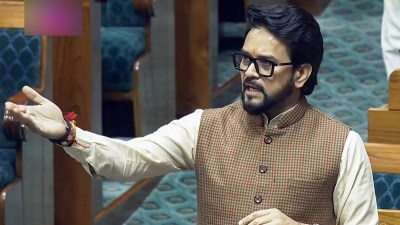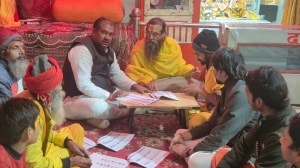‘Imperative of N-deal, IPI project is to secure energy’
Pranab Mukherjee has said the basic imperative of N-deal and the IPI gas pipeline is to secure energy.

Drawing a parallel between the Indo-US civil nuclear deal and the IPI gas pipeline, External Affairs Minister Pranab Mukherjee on Sunday said the basic imperative of both was to secure energy as he invited Iranian investment in India, particularly in oil and gas sectors.
Outlining the contours of ‘new’ India’s foreign policy in the current ‘international matrix’ with particular focus on ties with Iran, he said the relations between the two nations with civilizational linkages needed to be looked at ‘afresh’.
He talked about the challenges like terrorism and climate change facing Asia and stressed the importance of close ties between India and Iran for stability of the region.
Addressing a seminar on ‘India and Iran: Ancient civilizations and modern nations’ here, Mukherjee underlined that New Delhi’s foreign policy will remain independent and guided by the interests of its own people even while it strengthens ties with the US, Russia, China or any emerging economies of Asia, Latin America and Africa.
“We are working on a realisation that an economy that is growing at 8 to 9 per cent would require investments, energy, resources and technology at an hitherto unprecedented scale,” he told a gathering of Iranian intellectuals and policymakers.
Referring to the Indo-US nuclear deal, he said the sharp rise in fuel prices and the country’s huge energy needs for next 20-25 years had made New Delhi to conclude that ‘there is no alternative but to develop nuclear energy’ as 50 per cent of its energy requirements are met by coal and fossil fuels.
“The basic imperative of the India-US civil nuclear agreement is the same as that which binds us to the Iran-Pakistan-India (IPI) gas pipeline our energy needs are too large to be met from any one single source,” he said.
Mukherjee’s drawing of a parallel between the Indo-US nuclear deal and the IPI project infers that the UPA government is giving equal importance to the atomic agreement and the gas pipeline project with Iran.
This assumes significance as the UPA government has been accused of putting the IPI project on the back-burner because of the Indo-US deal.
Mukherjee cited the close civilisational ties with Iran and said the two countries share common interests and perceptions on many regional issues.
On the trade and economy front, he said important projects in sectors like oil and gas, steel, fertilizer, infrastructure and railways are being discussed and implemented.
The Minister said his government is encouraging India’s public and private companies to invest in Iran and hoped such projects for “mutual benefit would continue to enjoy the support of the government of Iran”.
While talking about the interest of Indian companies in Iran’s hydrocarbon sector, he said “We would like Iranian investment in India, especially in the oil and gas sectors.”
Pointing out that Iran is a very important producer of hydrocarbons and India a major consumer, Mukherjee said there could be mutually-beneficial long-term arrangements, including the agreement on supply of Liquefied Natural Gas (LNG) or the proposed IPI gas pipeline project.
Iraian Foreign Minister Manouchehr Mottaki, who jointly inaugurated the seminar with Mukherjee, said that political and economic relations between the two countries were good but there was “abundant room” to expand these. He invited Indian investment in various Iranian sectors, including hydro-carbon.
Mottaki said India and Iran have common views on various issues, particularly Iraq and Afghanistan where both want peace and stability. “There may be misunderstandings or mischievous acts by third parties but we have to go beyond those.”
- 01
- 02
- 03
- 04
- 05































